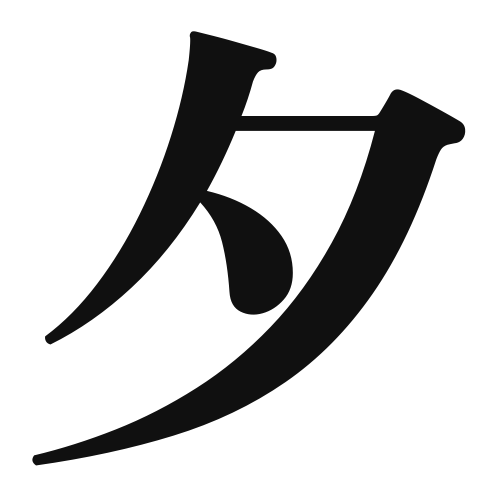1. Overview of Meaning
The kanji “夕” (yū) means “evening” or “dusk.” It represents the time of day when the sun sets and the sky darkens, marking the transition from day to night.
2. Formation and Radical
Formation of the Kanji: The kanji “夕” is a pictogram that originally depicted the setting sun. It is classified as a pictographic character, as it visually represents the concept of evening.
Radical: The radical for “夕” is also “夕,” which is used in other kanji related to time and evening.
3. Examples of Usage
Common Words and Phrases:
- 夕食 (yūshoku) – dinner
- 夕方 (yūgata) – evening time
- 夕焼け (yūyake) – sunset
Example Sentences in Daily Conversation:
- 今日は夕食に何を食べますか? (Kyō wa yūshoku ni nani o tabemasu ka?) – What are we having for dinner today?
- 夕方に友達と会う予定です。 (Yūgata ni tomodachi to au yotei desu.) – I plan to meet my friend in the evening.
4. Synonyms and Antonyms
Similar Kanji:
- 夜 (yoru) – night: While “夕” refers to the evening, “夜” specifically denotes the night time.
- 日 (hi) – day: This kanji represents daytime, contrasting with “夕” which signifies the end of the day.
Antonyms:
- 朝 (asa) – morning: This kanji represents the morning, which is the opposite of evening.
5. Cultural and Historical Background
Connection to Japanese Culture: The concept of “夕” is significant in Japanese culture, often associated with family gatherings and meals, especially during festivals.
Proverbs and Idioms:
- 夕焼け小焼け (yūyake koyake) – This phrase refers to the beautiful colors of the sunset and is often used to describe a peaceful evening.
